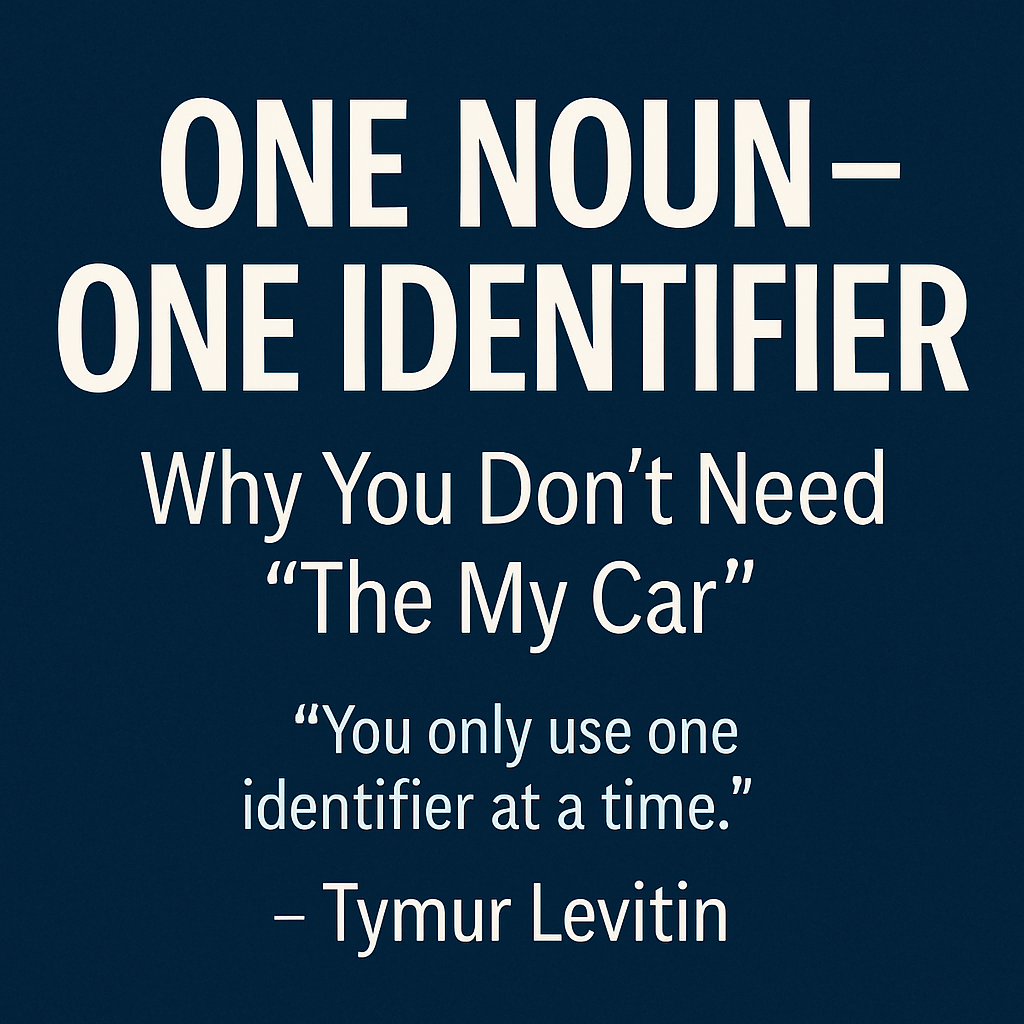(Author’s Column by Tymur Levitin – Levitin Language School)
Language. Identity. Logic. Sound.
🔗 Elija su idioma
📂 Rubric: German Language – Pronunciation & Intonation
What’s the Real Mistake?
It’s not just pronunciation — it’s intonation.
Most students don’t say “arbeiten” y “antworten” like Germans do.
They say:
- ❌ arbáiten
- ❌ antwórten
But in German, the correct stress is always on the first syllable:
- ✅ Árbeitenno arbáiten
- ✅ Ántwortenno antwórten
It may look small, but this shift in stress makes the word sound foreign, unnatural, and clearly non-native. And most importantly — it makes communication harder.
Why Does This Happen?
Let’s be honest — most students never get corrected.
And here’s why:
- 📌 Teachers avoid correction — they don’t want to interrupt the flow, or they assume it’s “not that important”.
- 📌 The wrong version circulates — learners hear it from others and copy it.
- 📌 Their native language has final stress — like Spanish or French.
- 📌 They’re afraid of “sounding German” — putting the stress in front sounds “too harsh” to them.
As a result, even strong learners walk around saying arbáiten for years. And nobody tells them it’s wrong.
What’s the Impact?
Every time you say arbáiten, the listener hears: “foreigner”.
Not because of your accent — but because of your intonation.
You don’t sound confident. You sound uncertain.
The Ending -en: Should You Pronounce It?
Let’s be clear:
Yes, -en is writtenpero in natural speechEl -e is almost swallowed, and the -n is often just brushed:
- ✅ arbeiten → arbeit’n
- ✅ antworten → antwort’n
But wait — what about Aussage?
Good catch. In words like Aussage, Frage, Straße — the -e is often more pronounced because these are feminine nouns ending in -e, and the syllable is clearer.
So yes, Aussage is usually pronounced with an audible -e.
But with verbs like arbeiten, the ending disappears into the flow.
It’s not a contradiction. It’s a phonetic pattern that learners need to hear, feel, and practice.
Why Don’t Most Students Ever Fix It?
Because no one tells them por qué it matters.
They get corrected on gender, case, article… but pronunciación is left “for later”.
The result?
Estudiantes freeze when speaking. They guess instead of feel.
And they never reach that natural confidence that German should give.
How to Fix It
- 🎧 Listen to native speech — and repeat with the right rhythm.
- 🎤 Practice with a real tutor — who corrects you gently and clearly.
- 🔄 Repeat the same verbs with correct stress until it becomes muscle memory.
Start with these basics:
- Árbeiten
- Ántworten
- Ánkommen
- Áufmachen
Related Articles
- 🔗 There is no magic answer – but there is a logic behind German endings
- 🔗 German Language Guide
- 🔗 “Girl”, “Baby”, “Детка”: One Word, Two Worlds
Autor: Tymur Levitin
Founder, Director, and Head Instructor at Levitin Language School / Start Language School by Tymur Levitin
© Tymur Levitin
📌 Aprendizaje global. Enfoque personal.
























